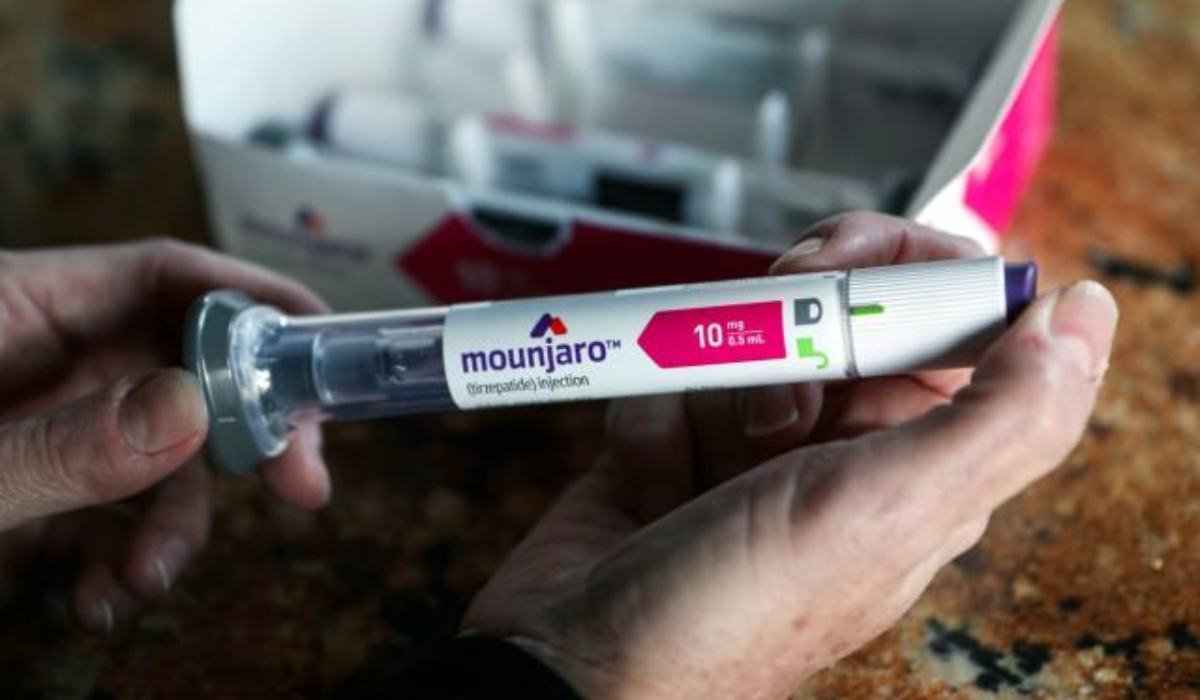Scott Read Pharmacy

What it Ozempic? Its Uses, Dosage & Side-Effects Explained!
Ozempic (semaglutide) is used for individuals with type 2 diabetes to help control blood sugar levels. It is also used to reduce the risk of significant cardiovascular complications, such as stroke, heart attack, or death, for those adults who already have heart disease.
Ozempic belongs to a group of medications known as glucagon-like peptide-1 (GLP-1) agonists. These drugs function by attaching themselves to GLP-1 receptors, which lowers A1C and blood sugar levels. Ozempic should not be utilized in the treatment of type 1 diabetes. If you’re looking for Ozempic or other diabetes medications, you can consult your local pharmacy in Houston.
Ozempic has also been demonstrated in clinical trials to assist with weight loss. However, Ozempic is currently not an FDA-approved weight loss medication.
After 30 weeks, patients on Ozempic 0.5mg dropped 2.6 kg compared to the placebo group, while patients on Ozempic 1mg lost 3.5 kg more than the placebo group.
Ozempic lowers blood sugar by reducing the amount of sugar your liver produces, assisting the pancreas in producing more insulin, and lowering the rate at which food enters your body, prolonging the feeling of fullness.
This weight loss drug Ozempic, ought to be used in conjunction with a healthy diet and exercise. To know more about Ozempic, its uses, and its side effects for weight loss, keep reading!
Can we use Ozempic for weight loss?
The Food and Drug Administration (FDA) has not authorized Ozempic for use as a medicine for weight management. But taking Ozempic may cause you to lose weight. That’s because the drug makes you feel less hungry.
In a pivotal trial, individuals with obesity who took the Ozempic medication along with lifestyle modifications lost almost 15% of their body weight in 68 weeks. On average, they shed roughly 34 pounds. The average weight loss among research participants who did not take the drug was six pounds.
Doctors may occasionally prescribe this medication off-label to treat weight issues. Off-label drug use refers to the practice of prescribing ozempic medication for uses other than those for which the FDA has approved.
Make sure you only take Ozempic as directed by your physician. Speak with your doctor if you have any questions about using Ozempic to manage your weight. Your doctor is more likely to recommend Wegovy because it has semaglutide, the same active ingredient as in Ozempic. The FDA has approved the prescription of Wegovy for the management of weight.
How to use Ozempic?
Ozempic should be used exactly as advised on the label or as directed by your doctor. Do not use in more or lesser quantities or for longer than indicated.
Read all drug recommendations and follow the Ozempic dose as per your prescription label. If you require assistance, consult your doctor or pharmacist.
Ozempic is injected beneath the skin, usually once a week, with or without food, at any time of day. Get an Ozempic dose injection on the same day every week. Only get ready to administer an injection before you prepare it. If your ozempic medication is hazy, has changed color, or contains particles, give your pharmacist a call.
Your doctor will demonstrate to you where to inject the semaglutide. Avoid injecting twice in the same location as you did the last time.
If you decide to switch up the day of your weekly injection, you should begin your new routine at least two days after the previous injection. Avoid using multiple brands of semaglutide at the same time and only purchase it from a reputable professional or trusted community pharmacy in houston.
Ozempic Side effects!
Here are some of the Ozempic side effects you should know about:
- Visual abnormalities
- Thoughts of self-harm
- Beats or thumping in the chest
- Dizziness or a sense of almost passing out
- Symptoms of a thyroid tumor, such as a lump or enlargement in your neck, difficulty swallowing, a raspy voice, or shortness of breath;
- Signs of pancreatitis include nausea with or without vomiting
- Fast heartbeat
- Excruciating upper abdominal pain that radiates to your back;
- Gallbladder issues: fever, clay-colored feces, upper abdominal pain, and jaundice (yellowing of the skin or eyes);
- Low blood sugar: nervousness, sweating, disorientation, irritability, headache, weakness, and fast heartbeat.
- Kidney problems–swelling
- Peeing less
- Feeling fatigued or short of breath
- Stomach pains, nausea, loss of hunger, diarrhea (may be watery or bloody).
Typical adverse effects could be:
- Bloating
- Indigestion
- Burping
- Gas
- Vomiting
- Nausea
- Stomach discomfort
- Loss of appetite
- Diarrhea, and constipation
- Low blood sugar (in persons with type 2 diabetes);
- signs of the stomach flu, such as a runny nose or sore throat;
- headache, and fatigue.
And, If you experience severe symptoms such as hives, itching; lightheadedness, rapid heartbeat; difficulty breathing; or swelling of the cheeks, lips, tongue, or throat—you should seek emergency medical attention.
To Conclude
Here’s a wrap on everything you need to know about Ozempic. Its basics, effectiveness for weight loss, how to take it, and even the Ozempic side-effects. This weight loss drug ozempic can be useful, but make sure you consult with your healthcare professional before taking it and even manage an Ozempic dose as well.
At the same time, don’t just get these injections from anywhere or any brand. Consult your doctor for the same and get it only from a trusted chemist shop to get high-quality products and desired results.
If you are looking for one drugstore in Houston, then reach out to Scott Read Pharmacy. We can provide you with a diverse range of high-quality medications and supplements to assist our customers.
Recent Posts
Recent Blogs
Study Reveals: Mounjaro leads to far more weight loss than Ozempic.
Study finds Mounjaro outperforms Ozempic in weight loss If you struggle with obesity, you’ve undoubtedly already heard all of the…
IBS or IBD: How do these two diseases vary?
IBS or IBD: How do these two diseases vary? We’ve all had uncomfortable digestion at some point. Bloating, painful cramps,…
Are Weight Loss Medications Worth it? A Deep Dive Into it
Scott Read Pharmacy: Elevate your health journey with our personalized weight loss medications, ensuring safe and effective results. Trust us for…
Scott Read Pharmacy is proudly powered by WordPress









